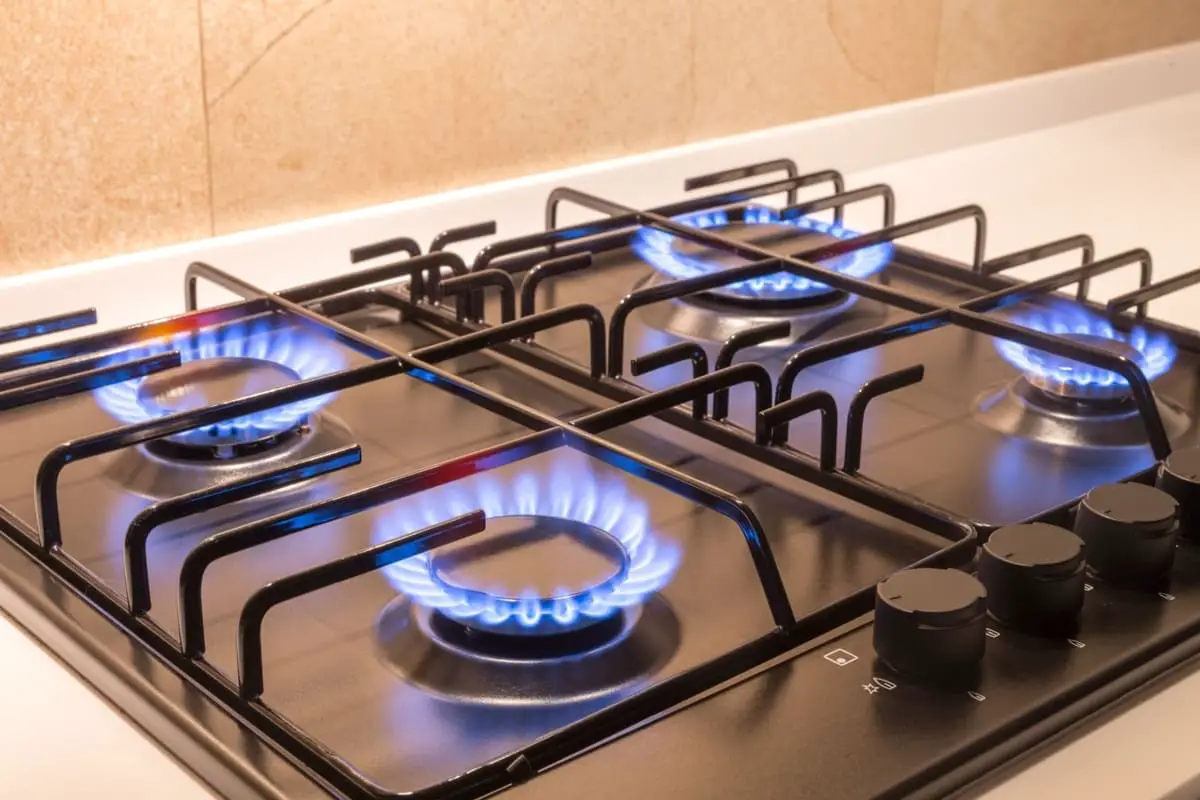In recent months, there has been a lot of talk about the potential outlawing of gas stoves in the United States. This discussion has been fueled by comments from various sources, including politicians and consumer safety commissioners. However, despite the rumors and speculation, the truth of the matter is that there is currently no nationwide ban on gas stoves in the United States.
One of the main concerns that has been raised in relation to gas stoves is their contribution to indoor air pollution. Gas stoves can release harmful chemicals and particulate matter into the air, which can have negative health effects, particularly for children and people with respiratory issues. However, while some individual states and cities have taken steps to address this issue, such as requiring ventilation systems in new homes, there is no federal ban on gas stoves at this time.
What are gas stoves?
Gas stoves are a type of kitchen appliance that uses natural gas or propane as a fuel source to produce heat for cooking. They are commonly found in households across the United States and are preferred by many chefs for their precise temperature control and quick heating capabilities.
Gas stoves consist of four main components: a gas supply line, a burner assembly, a control valve, and an ignition system. The gas supply line connects the stove to a gas source, while the burner assembly distributes the gas and produces the flame. The control valve allows the user to adjust the flame intensity, and the ignition system ignites the gas to produce heat.
Gas stoves come in a variety of styles, including freestanding ranges, cooktops, and wall ovens. They are also available in different sizes, from small apartment-sized models to large commercial-grade units.
While gas stoves have been a popular choice for many years, recent concerns about their impact on indoor air quality and the environment have led to discussions about phasing them out in favor of more sustainable alternatives such as electric or induction cooktops.
Why are gas stoves being outlawed?
Environmental concerns
Gas stoves have been found to contribute to greenhouse gas emissions, which contribute to climate change. Burning natural gas releases carbon dioxide (CO2), methane (CH4), and other harmful pollutants into the atmosphere. Methane is a potent greenhouse gas, and it is estimated that gas stoves are responsible for up to 5% of the total methane emissions in the US.
In addition to the greenhouse gas emissions, gas stoves also contribute to indoor air pollution. Poorly ventilated gas stoves can release volatile organic compounds (VOCs) and nitrogen oxides (NOx), which can cause respiratory problems, headaches, and other health issues.
Health risks
Gas stoves have been linked to a range of health problems, including asthma, allergies, and other respiratory issues. A study conducted by Harvard found that natural gas contained varying levels of volatile organic chemicals, which can cause respiratory problems, headaches, and other health issues.
Furthermore, gas stoves can leak low levels of methane gas and benzene even when not running, meaning exhaust fumes can build up in the home. This can lead to a range of health problems, including headaches, dizziness, and nausea.
In light of these concerns, some regulators and lawmakers are considering a ban on gas stoves. While there are some challenges associated with transitioning to electric stoves, many experts believe that the benefits of reducing greenhouse gas emissions and improving indoor air quality outweigh these challenges.
What are the alternatives to gas stoves?
Gas stoves have been a popular choice for cooking for many years, but with the potential ban on gas stoves, people are looking for alternatives. Here are some of the alternatives to gas stoves:
Electric stoves
Electric stoves are a popular alternative to gas stoves. They are easy to use and maintain, and they come in a variety of styles and sizes. Electric stoves are also more energy-efficient than gas stoves, which means they can save you money on your energy bills.
Induction stoves
Induction stoves are another alternative to gas stoves. They use an electromagnetic field to heat the cookware directly, rather than heating the air around the cookware. This makes them more energy-efficient than gas stoves and electric stoves. Induction stoves are also safer than gas stoves because there is no open flame.
Renewable energy stoves
Renewable energy stoves are stoves that use renewable energy sources, such as solar power or biomass, to cook food. These stoves are a great alternative to gas stoves because they are environmentally friendly and can save you money on your energy bills. They are also easy to use and maintain.
What are the challenges of switching to alternative stoves?
Switching from gas stoves to alternative stoves like electric or induction stoves can be challenging. Here are some of the challenges that users may face:
Cost
One of the biggest challenges of switching to alternative stoves is the cost. Electric and induction stoves are generally more expensive than gas stoves. The cost of an electric or induction stove can be up to three times higher than that of a gas stove. Additionally, if the user does not have an existing electrical circuit that can handle the extra load, the cost of upgrading the electrical system can be significant.
Installation
Another challenge of switching to alternative stoves is the installation process. Electric and induction stoves require a dedicated electrical circuit, and the user may need to hire an electrician to install the circuit. Additionally, induction stoves require special cookware that is compatible with induction technology.
Cooking experience
Users who switch from gas stoves to electric or induction stoves may find that the cooking experience is different. Electric stoves take longer to heat up and cool down, and the heat is not as responsive as gas stoves. Induction stoves, on the other hand, heat up quickly and are more responsive than electric stoves, but they require special cookware that is compatible with induction technology.
Despite these challenges, switching to alternative stoves can have benefits. For example, electric and induction stoves are generally easier to clean than gas stoves, and they do not produce smoke or combustion gases like gas stoves do. Additionally, switching to alternative stoves can help reduce carbon emissions and improve indoor air quality.
Conclusion
The debate over gas stoves and their potential ban is complex, with arguments on both sides. While gas stoves have been a staple in American kitchens for decades, they have also been linked to indoor pollution and health hazards. The Biden administration has faced backlash from Republicans for even considering a ban on gas stoves, but advocates argue that it is a necessary step in the fight against climate change.
It is important to note that a federal ban on gas stoves is not currently in the works. However, some cities and states have already taken action to phase out natural gas from new buildings. This includes incentives for consumers to switch to electric appliances, which are seen as a more environmentally friendly alternative.
Ultimately, the decision to ban gas stoves would require a careful consideration of the potential benefits and drawbacks. While it may reduce indoor pollution and carbon emissions, it could also have economic and practical implications for consumers and the energy industry. As the debate continues, it is important to stay informed and consider all perspectives before making a decision.



